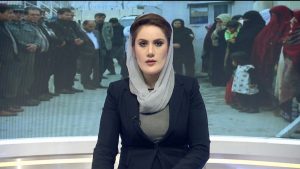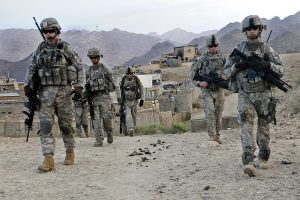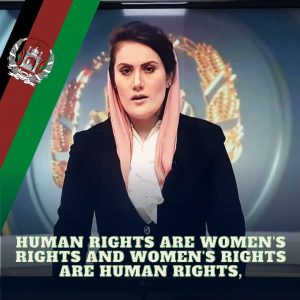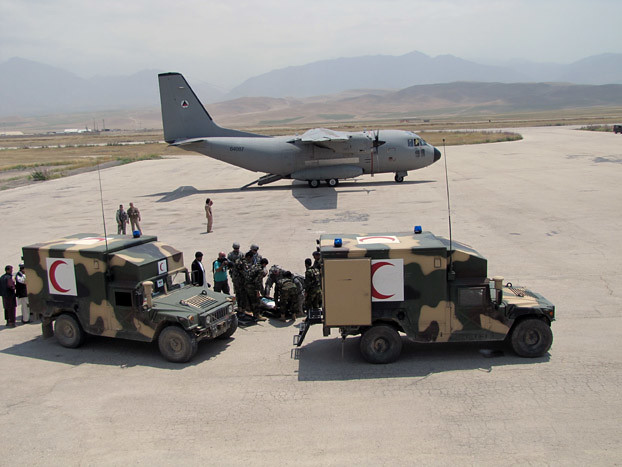It has been almost a year since the Taliban took over Kabul forcing thousands to flee Afghanistan fearing what this regime change would bring. Those deemed at most risk were journalists and women. As part of our collection of articles to mark World Refugee Day, Zahra Shaheer looks back on the harrowing experience of escaping her home country.
It was 15 August 2021, at around 7.45am, when my colleague rang to tell me the Taliban were near Pul-e-Charkhi, a suburb of Kabul, just a 20-minute drive from our newsroom.
I felt like someone had poured boiling water on me, burning my wishes and dreams. A few months earlier I’d refurbished my entire house and applied for a Master’s in gender studies. I wanted to work on women’s rights alongside my job as a news anchor.
Within a space of days, we had watched the Taliban capture the cities of Herat and Mazar. Everything was moving so fast. But I still somehow didn’t believe the world would allow the Afghan government to collapse.
My colleague thought we shouldn’t go into work that morning. But I had no choice. My nine-year-old son was already at school, near our office, and I wanted to pick him up myself.

I presented the radio news at 9am. The top story was the government’s negotiations with the Taliban. We didn’t know then that our President was preparing to flee. I rushed through the bulletin, tripping over words, something I never did.
Afterwards the studio producers joked that I sounded like the Taliban was holding a gun to my head.
It felt like they already were in the studio. I was afraid, like my sixth sense knew that they were coming. I knew I wouldn’t be able to present that evening.
My boss understood and told me to go home, a male colleague could cover. After a decade of presenting the daily news on TV and radio, this was to become my last broadcast.
I joined the growing crowd of women outside the HR office. We waited to collect letters about our service at the broadcaster, knowing already that this would be a memento of having worked in an Afghan office.
A good friend, a Pashto TV and radio presenter, was in tears. I won’t see you all anymore because we’re flying to France this evening, she said.
I felt like someone had poured boiling water on me, burning my wishes and dreams.
Straight after I called our family’s driver to go and fetch my son, but he told me that he had already, minutes earlier, dropped him home. My son was safe. He with my mother and my daughter, 10, who was luckily already home for exam study leave.
A friend and I inched home in a taxi through the traffic, a journey that usually took 15 minutes took four hours in the chaos of that day. On the way a former mentor, a British journalist, called to tell me she had contacted the Committee to Protect Journalists and could help me get on a flight. She asked if it was the right time for me to leave.
I hadn’t thought about it till now but instinctively I knew that I had to protect my children. As one of Afghanistan’s first female news presenters in the Dari language, I was a target. I had always encouraged girls and women to raise their voice. A few times my car had even been tailed by unknown drivers and I’d received anonymous calls threatening me and my family with kidnap and death.

As an ethnic Tajik from Kabul, I knew my way of dressing and interacting with both men and women would not be acceptable to the Taliban. As a single mother of two I also worried about forced marriages with their soldiers.
The flight to Dubai and from there to the Maldives or Belgium was booked in two days’ time. From there we could process our case to resettle somewhere else. But by the same evening, as the Taliban seized power, the flight was cancelled. Over the next few days my British friend worked frantically to help me leave Afghanistan and by 19 August she had secured seats for me and my children on an army-chartered flight.
The airport was crowded and stiflingly hot. Taliban soldiers armed with guns and wooden sticks manned a checkpoint just outside. We watched them beat people without the right documents to stop them from entering.

One moment still haunts me. A girl, 17 or 18 years old, recognised me from the news and begged me to take her inside. She said I’m a journalist, tell the army I’m your daughter. But I had to keep moving and went in with my family. I don’t know what happened to her.
To get to the British army checkpoint we had to cross a barbed wire fence. My children were terrified. They feared the Taliban and they didn’t want to leave without their grandma, my mother. An army officer pulled my children over the fence and into a British army vehicle.
As I climbed over to join them, I cut my hand. Maybe when international militaries saw the people rash, so they tried to prevent them from entering to the airport they erected their checkpoint with barbed and when I was at the airport around 24 hours
I was worried about explosions or attacks, worried about my children’s lives and futures.
As a single mother of two I also worried about forced marriages with their soldiers.
After more than 24 hours at the airport our plane took off. It stopped at Dubai and then onto Birmingham. It was good that we could start a new journey and life but still I was worried about deporting us back to Afghanistan or somewhere else.
We spent 12 days in hotel quarantine, then around a month living with relatives of my ex-husband, an Afghan with British citizenship, in High Wycombe and London. The Wycombe Refugee Partnership, working with Buckinghamshire County Council, found us a temporary house for a few days – after which it was back to a hotel in Watford as they processed our case.
We lived there for five months. It was a tough time. The children weren’t in school, and I knew no one. There were some other Afghan refugees, but we all came from different parts of the country and had led quite different lives. I had left a full and busy one, now suddenly I was free all day. There was no one to really share my feelings with.
In February 2022 we were resettled in High Wycombe. We live near the town centre and my children’s school is just a 20-minutes walk away. We are close to the train and bus stations, which is good as I don’t yet drive.
My children have started school, and I’m taking some short courses in English and professional development. I hope to apply for a master’s degree again, there are some scholarships available for refugees in teaching and education, then, in the future, find a good job as a journalist.
It is hugely difficult starting a new life again at the age of 32. Leaving my mother behind is the hardest part.
When I was a journalist in Afghanistan, I spoke my own language. I want to speak English fluently. I have a lot to say in my heart and mind, but I can’t always convey my message. I’m happy that my children are already fluent, they’ve made friends. But they too miss grandma.
I think about my job a lot. Being a journalist has been my identity for more than a decade. I especially miss and worry about my female colleagues. None of them are working like they once did. My role has already been replaced.
Zahra Shaheer is an Afghan journalist and a current participant on the Refugee Journalism Project.
Main Image
“100510-F-5188L-001.JPG” by NATO Training Mission-Afghanistan is licensed under CC BY-SA 2.0.
